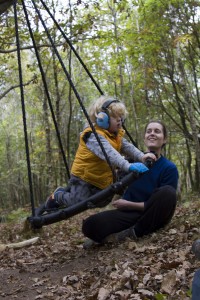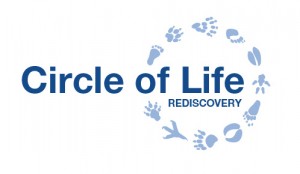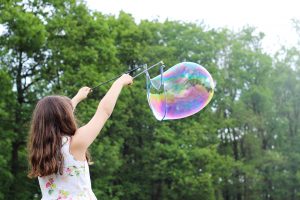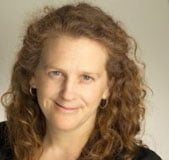World Autism Awareness Day – whether we have a diagnosis or not (which can be helpful or not), we are all individuals and one response or label does not fit all.
World Autism Awareness Day is a day to celebrate us all – especially those that are ‘different’ and find it more difficult to communicate with others in ways we expect or understand.
The popular term ‘neurotypical’ is stating that there is a ‘typical’ way that we interact
with others or not. In reality all of us find interaction difficult at times, and can be
supported in so many different ways, once we are understood. At the same time,
individuals can find it really helpful to understand how their ‘neuroatypical’ wiring,
affects their ability to interact with others and how they perceive the world around
them.
“At one end of the spectrum, autistic people may have significant learning disabilities
and require 24-hour support in order to lead their lives, while at the other end the
person may be very intelligent and successful in their chosen career but require a
little support and understanding from others in some areas of their life.” (Forest
School and Autism: Micheal James)
Autism spectrum disorder is described as, ‘persistent difficulties with social
communication and social interaction’ and ‘restricted and repetitive patterns of
behaviours, activities or interests’, present since early childhood, to the extent that
these ‘limit and impair everyday functioning’.
 Our funded Woodland Project which we run in partnership with CAMHS and CAMHS-LD-FISS offers family days out, parents days and a long-term teenage programme who are diagnosed with many labels. In the woods we are all people who are valued. We know it makes a positive difference to everyone involved and allows us all to achieve more than anyone imagined.
Our funded Woodland Project which we run in partnership with CAMHS and CAMHS-LD-FISS offers family days out, parents days and a long-term teenage programme who are diagnosed with many labels. In the woods we are all people who are valued. We know it makes a positive difference to everyone involved and allows us all to achieve more than anyone imagined.
The days encourage families to put their worries to one side, mingle and laugh knowing that their child’s behaviour is not the focus of attention. They support young people to feel safe, move through difficult feelings, find hope and be okay with who they are.
You can support the future of The Woodland Project by donating here. Thank you.
The majority of ‘autistic’ people present a level of difference in sensory processing
which affects them in their day-to-day lives. A recent workshop I went on gave us
various activities to give us a momentary glimpse into what it may be like to have
sensory processing difficulties. We had to undo and fasten buttons using washing up
gloves – not easy!
Next I walked around some cones looking through binoculars –my balance and sense of place was totally affected. Finally, the bit I enjoyed most was getting inside a stretchy sock, all tight around me. I experienced how safety can be increased by this touch and containment. And why so many young people I work with love getting inside hammocks or tight spaces.
We perceive the world and our place in it using our senses: sense of sight, sense of
hearing, sense of smell, sense of touch, sense of taste, sense of balance, sense of
our physical positioning and the strength of effort our body is exerting. These are not
the only senses – how we sense our internal feelings is also vital, as this lets us
know if we are hungry or sad.
Our bodies are always enabling us to ‘sense’ our world, and it is often through our bodies, in nature that we can learn to regulate and rewire ourselves to facilitate meeting our needs and providing an increase in well-being. Our new book co-authored by Marina Robb and Jon Cree will be published in Spring 2020. This will dedicate a chapter to the bottom up and top down strategies that we can apply in a natural environment – along with much, much more. Sign up to our newsletter to find out more.
The National Autistic Society recently produced a short film called Too Much
Information, which can be found on YouTube. The film shows the experience of
walking through a busy shopping mall from the perspective of an autistic child
experiencing an overload of sensory information. I would recommend taking moment
to watch this film if you have never experienced sensory overload personally.
Finally, on World Autism Awareness Day, I want to acknowledge the climate activist Greta Thunberg, who is diagnosed with Autism. Her protests have both called attention to climate policy, as she intended, but it also highlights the political potential of neurological difference.
An extract from: The New Yorker. See the full article here.
“I see the world a bit different, from another perspective, I have a special interest.
It’s very common that people on the autism spectrum have a special interest.”
Thunberg developed her special interest in climate change when she was nine years
old and in the third grade. “They were always talking about how we should turn off
lights, save water, not throw out food,” she told me. “I asked why and they explained
about climate change. And I thought this was very strange. If humans could really
change the climate, everyone would be talking about it and people wouldn’t be
talking about anything else. But this wasn’t happening.” Turnberg has an uncanny
ability to concentrate, which she also attributes to her autism. “I can do the same
thing for hours,” she said. Or, as it turns out, for years.
Here I am, sitting in Lewes, East Sussex. It is because of the many people who
have gone before me who acted, and people today, like Greta, that I am glad to be
part of a growing community to come, who values diversity and our uniqueness.
Today, on World Autism Awareness Day, thousands of young people are out on the streets across the world inspired by a young woman with Autism.
By Marina Robb
Circle of Life Rediscovery CIC – Director.
Transforming education, health and family through nature.
 Circle of Life Rediscovery provides exciting and highly beneficial nature-centred learning and therapeutic experiences for young people, adults, and families in Sussex woodlands, along with innovative continuing professional development for the health, well being and teaching professionals who are supporting them.
Circle of Life Rediscovery provides exciting and highly beneficial nature-centred learning and therapeutic experiences for young people, adults, and families in Sussex woodlands, along with innovative continuing professional development for the health, well being and teaching professionals who are supporting them.
www.circleofliferediscovery.com
01273 814226



